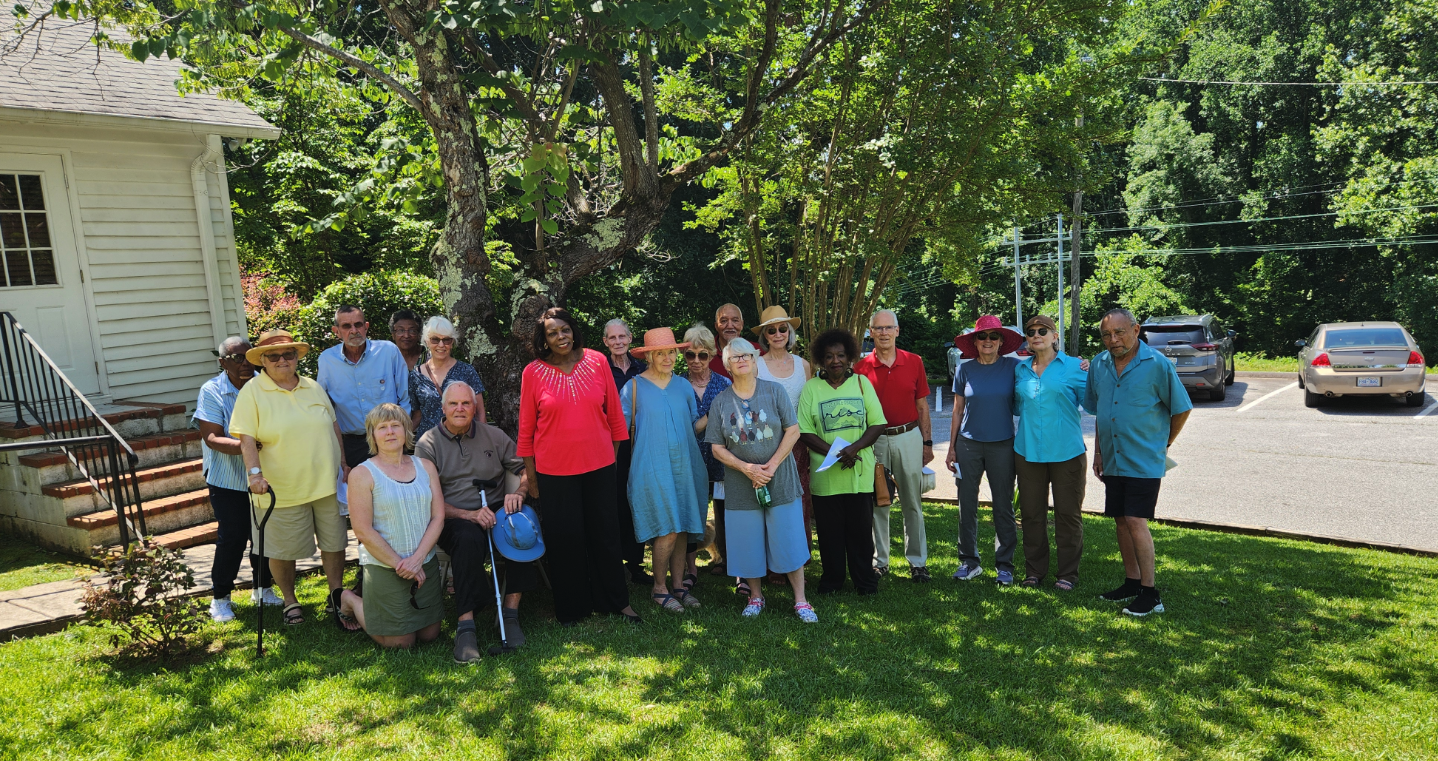Vaccines: Science’s gift to humanity
Published 10:00 pm Monday, August 29, 2016
A conversation with Dr. Amy Marietta of Polk Health Center
August is National Immunization Awareness Month. Local physician Dr. Amy Marietta agreed to be interviewed for this month’s column. Dr. Marietta is a family physician at Polk Health Center, a community health center in Columbus, N.C. Dr. Marietta received her medical and public health degrees from the University of North Carolina – Chapel Hill, and completed her residency in Santa Rosa, California, where she focused her training on rural and women’s health care.
Dr. Marietta and the healthcare team at Polk Health Center see patients of all ages and provide treatment of acute and chronic illnesses, prevention and screening, prenatal care, and everything in between! To schedule an appointment with Dr. Marietta or another member of the Polk Health Center team, please call 828-894-2222.
Q: Can you share why you’re so passionate about the topic of vaccines?
Absolutely. Most physicians and scientists would say that vaccines are one of the most important innovations in public health and modern medicine — and I fully agree! In fact, if I had to recommend one thing parents could do for their children that would have the best chance at keeping them safe and healthy, it would be to make sure that their children receive all recommended vaccines according to the recommended schedule.
Q: With so much evidence showing how vaccines have benefitted our society, why do you think there is so much lingering confusion and misinformation on the subject?
We all want the best for our children, so parents, in particular, can be prone to anxiety as they make decisions regarding their child’s health. Much of the confusion, however, stems from a single paper published by an individual named Andrew Wakefield, a former gastroenterologist, who reported a supposed link between vaccines (specifically the MMR vaccine) and autism.
Since this paper was published, Wakefield’s claims have been disproven in numerous follow-up studies. His research methods have been shown to be not only unsound, but fraudulent, and he has been prosecuted and stripped of his medical license.
The single most important piece of advice I can give anyone about vaccines is to encourage them to discuss their concerns with their family physician. I know that I welcome the opportunity to answer patients’ questions on this or any health concern.
Q: Some serious diseases such as whooping cough and measles are making a resurgence due to declining vaccine rates. Should I be concerned?
We all should be concerned about declining vaccination rates — it’s a very important public health issue! As more and more parents choose not to vaccinate their children, society loses its “herd immunity.” We know that the more people are vaccinated against an illness, the less likely it is that any person will become infected with that particular disease — this is “herd immunity.”
This point has been demonstrated in some incredible success stories as we’ve seen the eradication or near-eradication of diseases such as smallpox, polio and measles. However declining vaccination rates mean that there are pockets of individuals who are not vaccinated and, as a result, are highly susceptible to infection, making an outbreak more likely.
Herd immunity is an important concept and it can only achieved by vaccinating as many people as possible. Herd immunity also plays a vital role in protecting those individuals that are unable to receive immunizations such as those who may be immunocompromised due to illness or chemotherapy, or very young infants.
Q: What do you say to parents who worry that vaccines pose a threat to their child?
As the mother of a toddler, I tell them that I chose to vaccinate my daughter and I’m grateful every day that I had the opportunity to do so. As a society, we’ve forgotten that illnesses such as whooping cough or measles can potentially cause permanent disability or death. Many physicians practicing today have spent their entire career without seeing these dreaded diseases precisely because vaccinations have been so effective.
The real risks of vaccines are incredibly small. Most often, there might be some local tenderness for a few days or infants might be a bit fussy after a shot. These side effects are usually less severe than average cold. Very rarely, a patient might be allergic to an ingredient in a vaccine. For this reason, we take precautionary steps and observe patients for 15-20 minutes after administering immunizations, when such a reaction is most likely to occur.
Q: A lot of people might be surprised that adults still need vaccines to help us stay healthy. What are these vaccines and why are they important?
Every person is different, so it’s important to work closely with your family doctor to determine which vaccines you need. Most vaccines are administered before kindergarten, but women who are pregnant, seniors, and those living with chronic conditions such as COPD, diabetes or heart disease have special needs. Several vaccines require boosters as well. Older adults (65+) should ask about the newest vaccine for prevention of pneumonia, Prevnar.
Q: What would you tell someone who is debating whether or not to get a flu shot this year?
The influenza virus does not discriminate. Even if you are young and healthy, you can face a long hospitalization or even death because of the flu. Flu shots are safe and they are the number one thing you can do to protect yourself, to strengthen our collective herd immunity, and to take responsibility for protecting the health of our community.
This year, the nasal flu vaccine, or “Flu Mist” is not recommended by the CDC, because research showed that it was not as effective at protecting individuals from the illness. I will be recommending the injected vaccination to all my patients 6 months and older this flu season.
Q: What are some of lesser known vaccines that are worth learning about?
Gardasil is the first vaccine that can protect against certain types of cancer in both girls and boys — and that’s an incredible medical advance! Parents should talk to their child’s physician about the appropriate timing for this vaccine, but it is generally recommended at age 11-12.
If you are planning travel outside of the country, it’s important to talk to your physician about your itinerary, as different countries have different vaccination requirements and recommendations.
Q: Are vaccines covered by major insurance? What resources are available for those who are uninsured?
Most vaccines are covered by insurance. If you or your child is uninsured, check with your local health department or community health center, like Polk Health Center. Both are able to offer age-appropriate vaccines for free for those who qualify.
Q: Is it safe to get vaccines from pharmacies and so-called “minute clinics”?
If this is a person’s only way to get vaccinated, it is a safe option. However, I would caution once again that nobody knows your unique medical situation like your family doctor, so it’s best to develop a plan with your physician that meets all your health needs.
Q: Do you have any final thoughts that you’d like to share with readers?
Establishing open communication with your physician is one of the best things you can do for your overall health — it may not always be easy, but it’s worth the effort! I always encourage my patients to bring up their concerns with me so that we can discuss them together — whether we’re discussing vaccines or other important health topics. Physicians are the best-trained individuals to give accurate, medically sound advice — we are your biggest advocates! And we want to keep you and your family healthy.
A complete schedule of recommended vaccines and detailed information on vaccines and their safety can be found at www.cdc.gov/vaccines.
Wendy Thomas is a member of Polk Fit, Fresh and Friendly’s board of directors. She lives in Polk County and follows up with her doctor’s recommended vaccinations.





